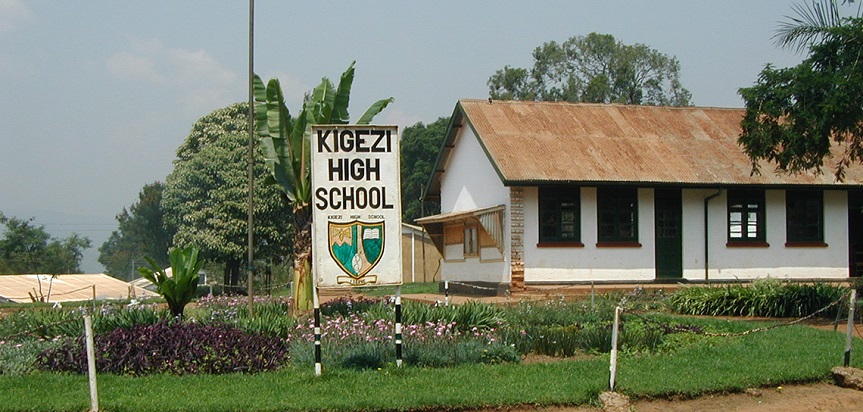Many Ugandans are excited about the oil money that is expected when oil starts flowing come 2020.
However, many will not physically touch the oil money that many believe will transform Uganda economically.
According to experts, US$15bn (Shs54.7 trillion)-US$20bn (Shs73 trillion) is expected to be invested in Uganda’s oil and gas sector in the next three-four years and this where Ugandans should concentrate.
This was disclosed during a trade forum hosted by Stanbic Bank Uganda in partnership with the Energy Industries Council EIC and the British High commission at Serena Hotel on Tuesday.
The trade forum was held under the theme “Unlocking opportunities in the oil & gas supply chain”.
It was attended by a high-powered trade delegation from the UK who were in the country to introduce British O&G goods and services providers to Uganda and also facilitate JV’s partnerships and strategic alliances with Ugandan businesses.
The delegation, a first by a UK trade envoy to Uganda, was led by Lord Dolar Popat who is the UK Prime Minister’s Trade envoy to Uganda and Rwanda.
Participants in the panel discussion moderated by the Stanbic Chief Executive Officer Patrick Mweheire included Ernest Rubondo, the Executive Director of the Uganda Petroleum Authority, Elly Karuhanga, the Chairman of the Uganda Chamber Mines, Jimmy Mugerwa, the General Manager of Tullow Uganda and Phil Haymes – DIT UK Oil and Gas Specialist.
Delivering opening remarks, Stanbic Bank Uganda Chief Executive Officer, Patrick Mweheire welcomed the delegation to the country noting, “The UK is a key trading partner for Uganda given the common history we share together and London’s position as one of the world’s premier financial capitals. British companies are therefore well positioned to be valuable participants in the development of Uganda’s hydro carbon sector.”
Local Companies Urged To Participate
He added: “As a bank we firmly believe the Oil and Gas sector is one of the catalysts that will proactively lead Uganda’s economic transformation given the multiple subsectors it touches. This will only happen however if local companies are given the opportunity to participate as active partners in its planning, execution and development.
Stanbic Uganda is already playing its part to make this possible and has hosted several local content awareness workshops, collaboration conferences and forums aimed at up skilling local players and fostering partnerships.”
Between US$15 Billion and US$20 Billion is projected as investments required for the full development of Uganda’s Oil and Gas industry which is expected to peak in 2030 with 300,000 barrels being produced on a daily basis.
Over 80% of the budget has been earmarked for the development of related infrastructure, an Oil refinery and 1,445km pipeline recently launched by the Presidents of Uganda and Tanzania.
Stanbic Bank Uganda alongside Japan’s Sumitomi Mitsui of Japan were appointed as joint financial advisers for the oil pipeline which will connect Uganda’s oilfields in the West of the country to the port of Tanga in Tanzania. The bank plans to raise $3 billion USD for the project in the second half of 2018 as Uganda prepares to start oil production by 2020.
Mweheire said that if 30% of the anticipated US$15bn-20bn can be spent on Ugandan companies, the country’s economy will automatically transform. He said currently big contracts are taken up by foreign companies.
Tullow’s Mugerwa said that there are about 25 opportunities in oil and gas sector exist in catering, waste management, construction, clearing and forwarding and others services. He said the list of opportunities where Uganda can participate can be accessed via Uganda Petroleum Authority website and contacting oil companies already operating in the country.
He however said “local companies have to accept the standards and this requires them to undergo further training.”
“If Ugandans are well trained, they will work in other East African countries,” he added, referring to oil and discoveries in Kenya, South Sudan, Tanzania and Somalia.
More Sensitization Needed
Elly Karuhanga, who has been involved in the oil and gas sector for many years, said that “many Ugandans aren’t sufficiently aware of the opportunities” that exist in the Oil and gas sector.
“We haven’t reached the core SMEs (Small and Medium Enterprises),” he said, adding that politicians also need sensitization-for many aren’t aware about the opportunities that exist in the sector.
He noted that access to finance by SMEs remains a nightmare in Uganda.
“Many banks have not yet woken up to these opportunities. Oil and Gas is a capital intensive business which needs participation of banks and on reasonable terms,” he said.
Rubondo revealed that 500 suppliers have been certified to participate in the sector so far.
He added that this number is going to increase in 2018, revealing that about 2,500 have expressed interest in joining the Oil and Gas sector as suppliers and service providers.
Giving a keynote address, Lord Popat, who was born in Uganda but left the country at a young age, thanked Energy State Minister, Simon Du’jang Minister and Government for the warm welcome.
“As the Prime Minister’s Trade Envoy to Uganda I am delighted to be leading the EIC delegation to Uganda. Britain’s oil and gas industry has tremendous expertise and Uganda’s growing energy market – with planned refinery, pipeline and field development project is a perfect place to engage in opportunities. As is the theme for this conference, it is important that oil and gas develops Ugandans and UK companies are here to support that,” he said.






